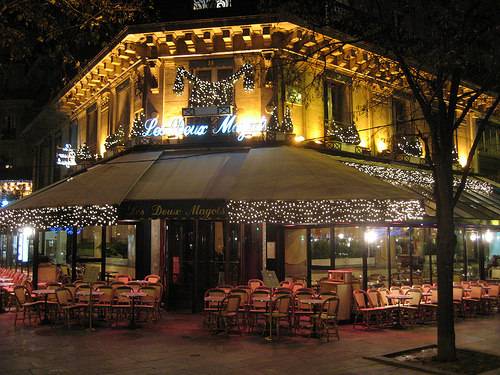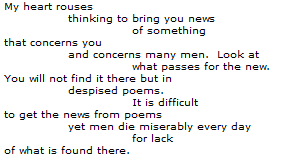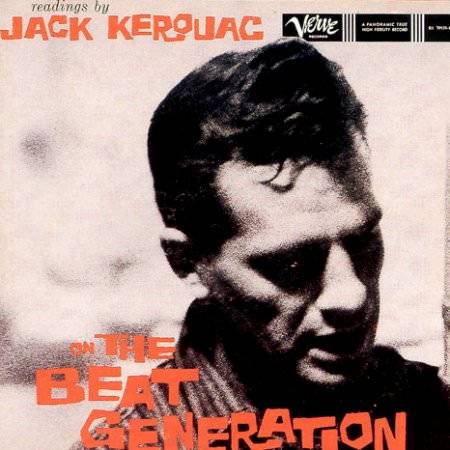“Grief brought to numbers cannot be so fierce,
For he tames it who fetters it in verse.” — John Donne

In advance of National Poetry Month, Publishers Weekly has published an essay by Craig Morgan Teicher on a significant obstacle in the move toward e-publishing. Well, maybe it’s not significant. It’s poetry.
Poetry is the red-headed step-child of publishing, always last in the queue for its bowl of gruel. But finally, it’s gruel-time. The main poetry publishers, including Graywolf, Copper Canyon, BOA, Coffee House and Wesleyan “will make at least some of their books available as e-books by the fall.” But there’s a problem.
As adaptable and dynamic as EPUB and other e-book publishing formats may be, they are, as the bard said, crap at preserving line breaks. For those of you whose education did not include poetry (i.e., for all of you) line breaks are indispensable to poetry. It’s not merely a stylistic convention, it’s a sonic one. (Think of a line break as a modulating comma, period or dash depending on the context.) Especially in an era when a poet is more likely to be able to write XML than metrical verse, line-breaks in contemporary poetry are one of the few elements that sustain any sort of architecture in a poem. (Turn a poem from a feeling into an artifact.)

But whether it’s George Herbert, Wu Tsao or David Berman a poet is crippled without the ability to create the script of a poem in the way he or she hears it in the imagination. To crib a stunt from PW, take a look at these two versions of a part of Williams’s, “Asphodel, That Greeny Flower.”
“My heart rouses thinking to bring you news of something that concerns you and concerns many men. Look at what passes for the new. You will not find it there but in despised poems. It is difficult to get the news from poems yet men die miserably every day for lack of what is found there.”
Now this one.

Because of the relative lack of popularity, and profitability, of poetry in the modern age, and the difficult hand-coding a format like EPUB needs (even then it seems to be more at the whim of a transcorporated entity than the most metaphysical verse), most poetry has yet to see the inside of an e-book and most won’t, at least no time soon. Publishers Weekly outlines a few possible solutions. I have a couple of my own, but we’ll get to that.
Solutions
Ampersand, a free smartphone and iPad app from Bookmobile, creates beautiful text. In PDF, wrapped in DRM. So, is it really an e-book? Seems to me that it’s a document you can read on a smartphone or tablet. Some publishers are getting behind this tech. But I wonder if people who are excited about the benefits of the e-book format, as outlined by our own dear leader, Richard, will be that excited about something that is so static. At least it preserves the art of the book’s design. Kind of. It will be available at the Bookmobile store this coming summer.
Copper Canyon has received a $100,000 grant from the Paul G. Allen Family Foundation to develop e-book formats like EPUB to a point where they will organically accept the specific needs of poetry.
Google Books has scanned the living daylights out of everything they can get their hands on. Not everyone has been thrilled by the prospect. Still, Google is a screaming metal juggernaut filled with brainiacs who are not afraid of weird ideas. Although nothing is cooking in the poetry e-book area so far as I know (how far down on someone’s 20% would that project be?), you never can tell.
And now for something completely different
As a published (though not nearly published enough) poet, I have a vested interest in seeing my poems, and that of others, out. The more poetry the better. Not only is it what I value, and what I personally dig, but it will benefit me as a poet. But poetry e-books are so far down the list of what poets and publishers should be spending their time on I can hardly express it.
A group of poetic ne’er-do-wells I’ve belonged to for years, the Big Time Poetry Theatre, spent years giving readings, off-book, everywhere from street corners to bars to theaters. One time in particular I remember putting up a poster (ask your parents) for a big show we were putting on full of rock bands, lecturers, dancers and poets, when a guy came up and said, “I remember you guys. After I heard you do ‘Song of Myself’ I went out and bought a recording of James Earl Jones reading ‘Leaves of Grass.'”
Why’d he buy an audio book? Because if a poem doesn’t leave you breathless, it’s a diary entry.
The technology is already there, in spades, to publish poetry in audio files of different sorts. Poetry is, in the end, the deformation of air in patterns. It should be out loud. There’s nothing wrong with a book of poetry, but if it can’t live in the air it’s a hothouse flower. We’ve got enough of those.

If you’re not familiar with recorded poetry, the Internet is rife with options.
So by all means, keep working on adapting e-books for poetry. If you want. In the meantime, publishers, push the thousands of ways a customer can “read” a sound file. Vinyl, CDs, streaming audio, downloads to computers, tablets, laptops, phones. Given the extraordinary resurgence in vinyl, start pumping out Deborah Garrison, David Berman, Derek Walcott on LPs! Get musicians together to cut a record of their favorite poems.
- Salon’s got a rather generous poetry audio section, featuring everyone from Dylan Thomas to ee cummings to Wanda Phipps to Billy Childish to Langston Hughes.
- Poetry Foundation features a “poem of the day” and other audio programs that feature recited poetry spanning the range from Weldon Kees to Ben Johnson to Ho Xuan Huong.
- Audible‘s poetry section has Derek Jacobi reading English poetry, Richard Burton reading Donne, Coleridge and (blarf) Hardy and the poetry of Anne Sexton.
Here’s the important thing. Until people realize you can rock your obscure object of desire back on his or her heels and straight into the sack by memorizing and reciting poems, no amount of technology will make a bit of difference.
But once they do, oh my…
Reading photo by Rhymes | Deux Magots photo by Chris Pomeroy | Asphodel screen from Poets.org










